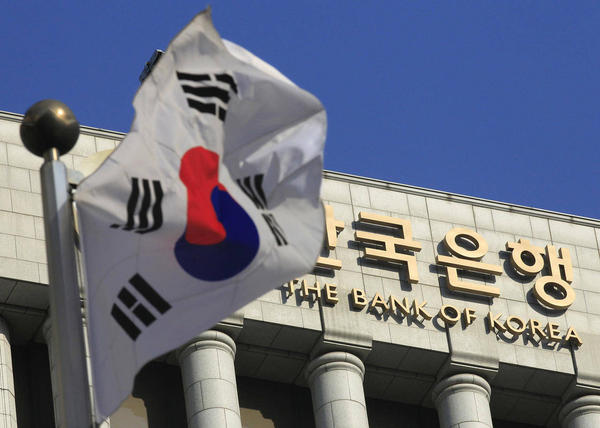South Korea’s central bank on Thursday lowered its economic growth and inflation outlook for this year as Asia’s fourth-largest economy continues to stumble due to lackluster domestic demand.
The Bank of Korea cut its growth forecast for the year to 3.4 percent from 3.8 percent while slashing its inflation forecast to 1.9 percent from 2.4 percent. The previous forecast was released in October.
 “The outlook for this year is lower than the October forecast, as well as those by other institutions. But this is mostly due to low fourth-quarter growth that stems from unusual factors,” BOK Gov. Lee Ju-yeol told reporters in a news conference. “Fourth-quarter growth was quite sluggish due to the new handset subsidy law and a fall in government spending from a lack of tax revenue.”
“The outlook for this year is lower than the October forecast, as well as those by other institutions. But this is mostly due to low fourth-quarter growth that stems from unusual factors,” BOK Gov. Lee Ju-yeol told reporters in a news conference. “Fourth-quarter growth was quite sluggish due to the new handset subsidy law and a fall in government spending from a lack of tax revenue.”
The top central banker, however, said the economic recovery trend is seen to be better compared with last year as the growth in the fourth quarter improved from three months earlier.
The latest forecast is dimmer than the finance ministry’s revised outlook. In December, the finance ministry trimmed its growth estimate for this year to 3.8 percent from 4 percent, citing lower-than-expected consumption and business investment.
Finance Minister Choi Kyung-hwan took similar views with Lee. In talks with local businessmen in the southern port city of Busan, Choi said domestic consumption is showing some signs of recovery, but the effect has not spread enough for ordinary people to feel the change.
South Korea’s private consumption expanded 1 percent in the third quarter compared to the previous three-month period, according to the ministry. This is an improvement compared to the contraction of 0.3 percent in the April-June period.
In a separate statement, the central bank expected private spending to gradually rise this year on falling oil prices and an increase in jobs while sluggish consumer sentiment and growing household debt may limit the improvement.
Investment is also expected to continue to gain traction with a global economic recovery and government policies aimed at boosting investment. The central bank, however, cited weak business sentiment and the introduction of carbon emission trading as downside factors.
The central bank projected the annual current account surplus to rise to $94 billion, up from $90 billion this year. (Yonhap)

